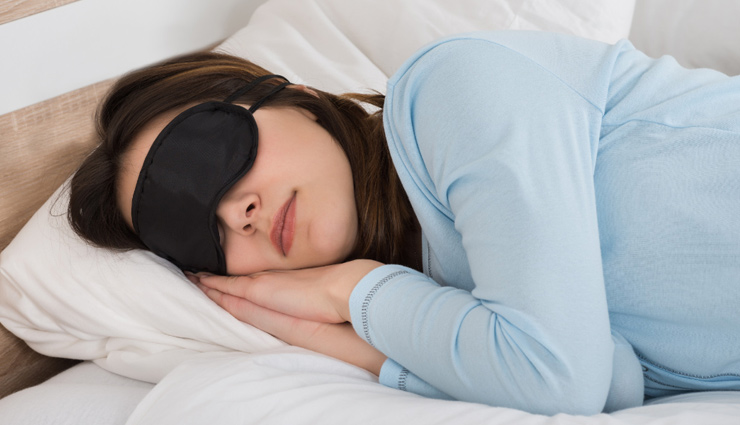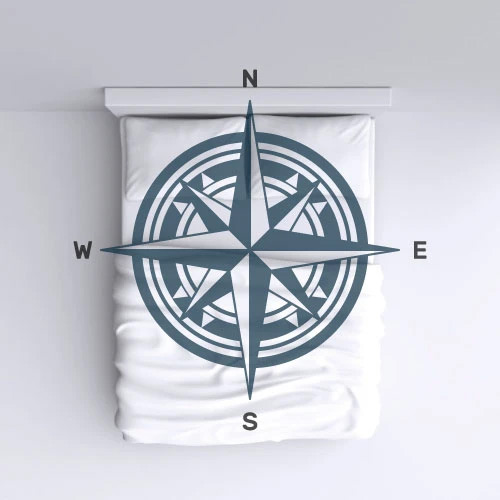
Yes! Sleeping in the wrong direction may be the root cause to all your sleep woes. So, the next question – what is the right direction to sleep?
To know the answer, you must first understand the concepts of sleep direction as per VastuShashtra and Fengshui. In this article, we shall take you through the basics of these theories to beat insomnia and get you sleeping well again!
Even our ancient Indian Vastu Shastra and Chinese Feng Shui also say that sleep directions can determine the positive and negative energies in our life, which play a key role in how we sleep. To channelize more positive energy, you need to follow certain principles of science like architectural changes in the case of Vastu Shastra and placing objects in space in Feng Shui.

We all know that the sun rises in the east! East symbolizes mental awakening and enlightenment, making it a good direction to sleep. Sleeping with the head facing east can be particularly beneficial to students and children, as the positive energies in this direction can improve concentration and memory power. These individuals tend to have better quality sleep, shorter REM cycles and lesser dreams.
Sleeping with Head in West:
As per the Vastu Shastra, West is associated with ambitiousness, zeal for success and high energy levels. Sleeping in the west direction can give you anxiety, restlessness and even nightmares. This is why many Vastu experts opine that the west is not an ideal sleeping direction and can impact your health in the long run. However, there are people who suggest west is a neutral direction which neither helps nor harms.
Sleeping with Head in South:
According to the ancient Hindu beliefs, South is the direction of Yama, the God of Death! In the context of sleep, one who sleeps like a corpse is the one who enjoys good health. So, South can be considered a good sleeping direction as it can promote deep, quality sleep without disturbing dreams. It is important to enjoy this ‘death-like’ sleep regularly for a healthy body and mind.
Sleeping with Head in North:
North is the worst direction to sleep in! From a scientific point of view, North is the positive pole of the earth magnet. In your body, the head is the positive pole. When you sleep with your head pointing to North, the magnetic fields repel and attract negative energies. This is why you tend to wake up feeling exhausted and cranky in the morning. So, avoid putting your head towards the North while sleeping at all costs!
* Invite positive energy into the body
* Reduced risk of hypertension, anxiety, depression and anger
* Quality, undisturbed sleep all through the night
* Shorter REM (Rapid Eye Moment) cycles and reduced dreams
* Better body and mind coordination
* Enhanced mental concentration and better flow of creativity
Sleep Tips from Vastu Shashtra:
* Always place the bed in the right direction to enjoy quality sleep. The headboard should point east or South, and the legs must point North or West.
* Couples must sleep on a single mattress than on divided mattresses to avoid their romantic life from getting disturbed.
* You must never sleep in the corners of the room, as it can cause suffocation and also invite negative energies into the body.
* If the room has a beam, avoid putting the bed directly under it as it may obstruct the flow of good luck and prosperity.
* Cluttering under the bed can cause sleeplessness and nightmares. So, declutter stuff and keep the space under your bed empty.